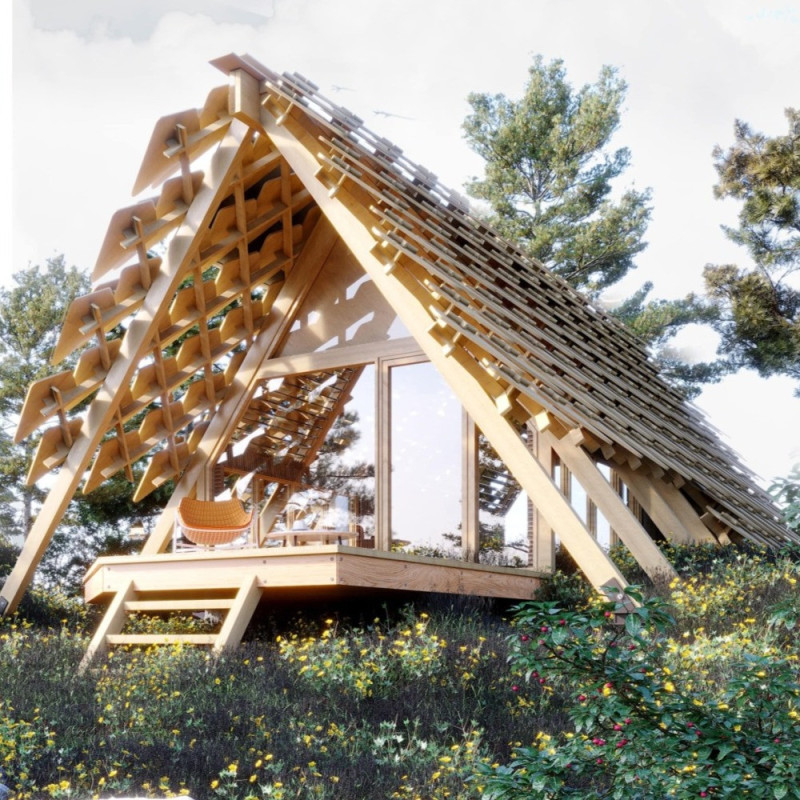5 key facts about this project
The JANUS Project is an initiative that aims to create a micro-home community for families engaged in agriculture in the Mindanao region. The overall design concept focuses on sustainability and the relationship between people and their environment. It addresses important local environmental issues, especially soil erosion, and seeks to create a living environment that supports both daily needs and community resilience.
Site Challenges
Mindanao's landscape presents significant challenges due to soil erosion, particularly in areas with steep slopes. The design effectively responds to these conditions by incorporating a slope-oriented framing system. This system provides structural stability and minimizes negative impacts on the surrounding land. By addressing these environmental challenges, the homes can maintain their integrity while supporting agricultural activities.
Sustainable Features
The micro-home units include various features that promote off-grid living and resource efficiency. A solar panel array, featuring four 350-watt panels, ensures reliable energy for residents. The prefabricated wood composite canopy provides shade and enhances passive cooling, contributing to a comfortable interior environment. Additionally, a grey water recycling system and a 50-liter rainwater collection tank support effective water management, making daily living more sustainable.
Design and Living Experience
The design considers the living experience of the residents through thoughtful planning and details. A Jalousie curtain system allows for controlled ventilation and maximizes natural light in the homes. The roof design imitates natural tree canopies, providing shade and connecting the homes visually to the landscape. This approach promotes a sense of harmony with the environment while supporting comfortable living conditions.
Materials and Construction
Construction of the JANUS micro-homes highlights the careful selection of materials that prioritize sustainability and durability. The use of prefabricated wood composite elements reduces environmental impact while maintaining structural strength. This choice reflects a commitment to creating homes that function well in their ecological setting and support the daily lives of the families who live in them.


















































